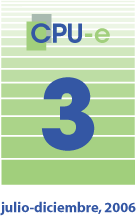Resumen
El artículo describe el trabajo de coordinación del proyecto europeo CLIEC (Cooperative Learning in European Contexts) denominado AMIGHA en su versión castellana (Aprendizaje Multicultural e Instructivo con Grupos Heterogéneos en el Aula). Para ello, el primer aspecto que aborda es la contextualización de la Interculturalidad en España, tanto desde el punto de vista político-legislativo como sociodemográfico. En segundo lugar, el artículo presenta una breve descripción y análisis de las actuaciones y experiencias obtenidas tras los tres años en los que se ha desarrollado el proyecto CLIEC, las reflexiones de las autoras en torno a los factores de éxito así como sobre aquellos aspectos que han impedido un completo desarrollo. En tercer lugar, se explicitan los principios fundamentales que, de acuerdo con el CLIEC, han de orientar la Educación Intercultural en las aulas con el objetivo de avanzar hacia un concepto más dinámico del que hasta ahora ha priorizado en el contexto educativo español y en Europa. Finaliza perfilando algunas líneas futuras de reflexión y acción derivadas de dicha experiencia.
Abstract
The paper we are proposing has the object to describe the European Project CLIEC (Cooperative Learning in European Contexts), renamed into the spanish version as AMIGHA (Aprendizaje Multicultural e Instructivo con Grupos Heterogéneos en el Aula). Firstly, the article show the politico-legislative view referred to Interculturality and Attention to diversity in Spain and the socio-cultural context together with its economic reality. Secondly, we describe and analyse in brief the actions and experiences we have obtained along the three years we have developed the CLIEC project. Third, we are proposing the principal points, that according with the CLIEC, have to direct the Intercultural Education in order to move forward a more dynamic concept, “beyond the immigrant population”, envisaged as the unique category that builds interculturality at the educational area. Finally, we outline some future lines of reflection and action arise from this experience.

